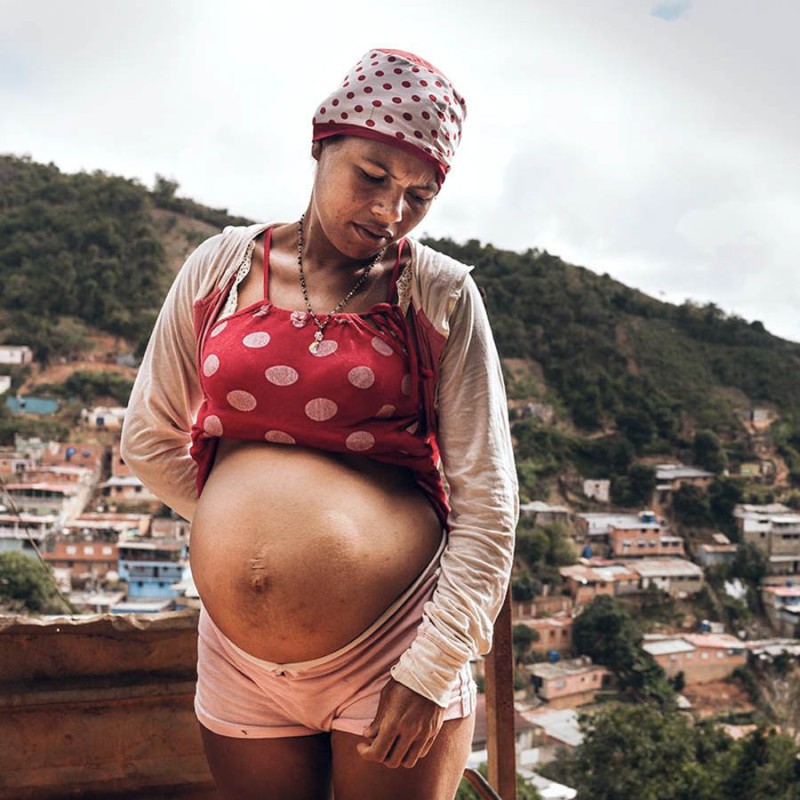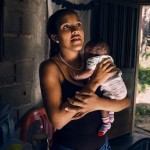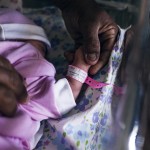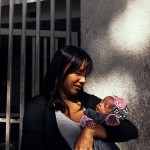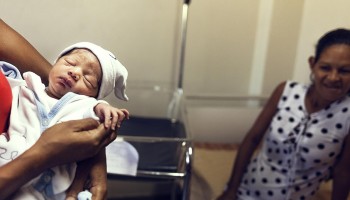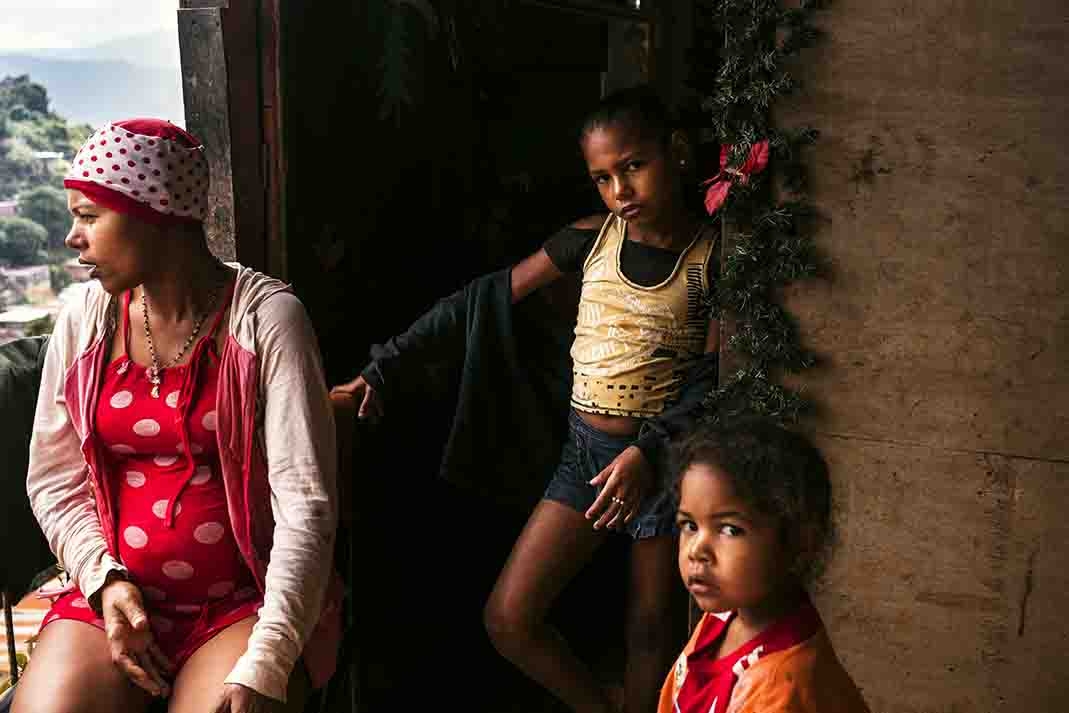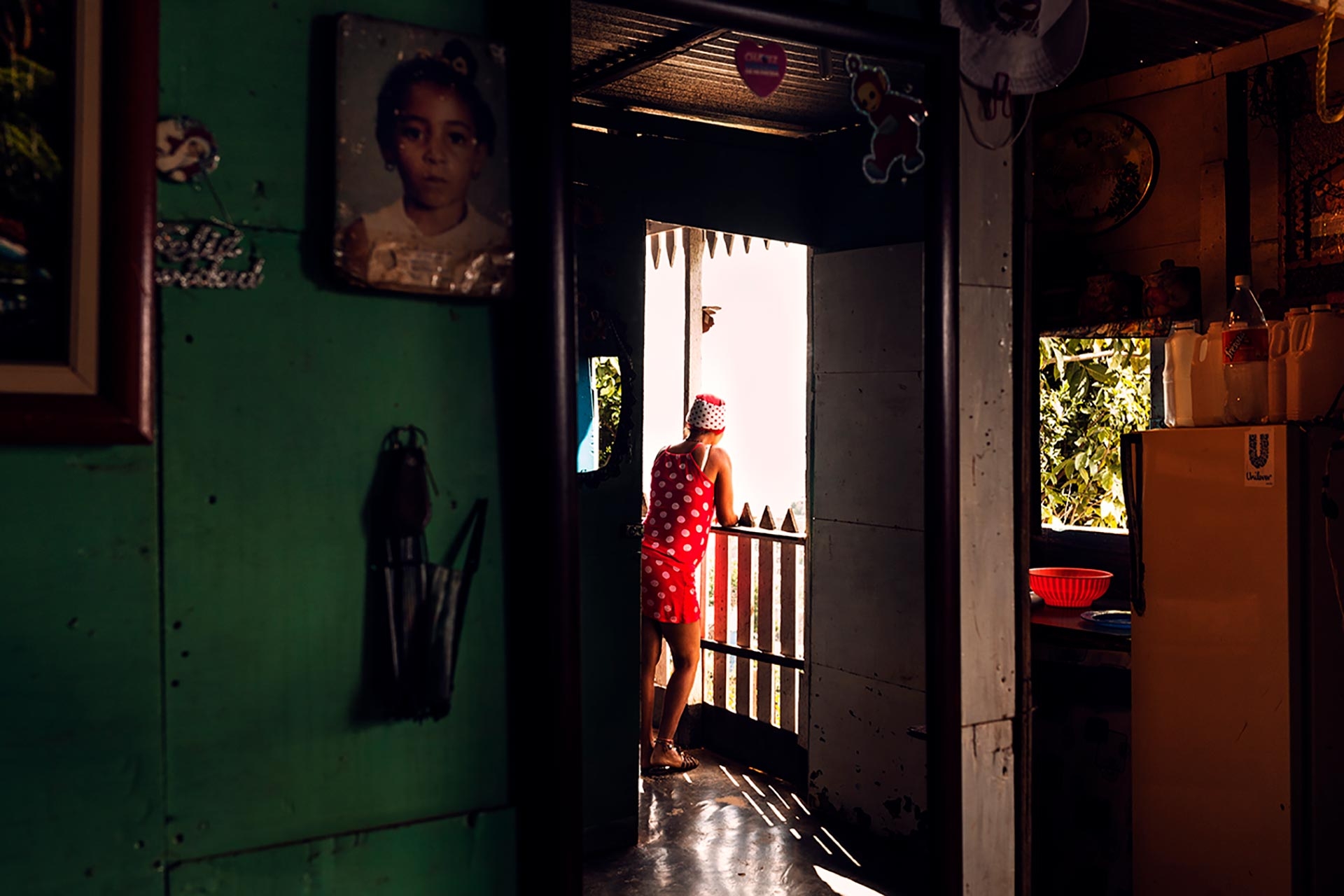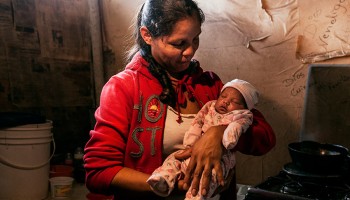When a whole household goes hungry
It is 11 o’clock in the morning, and Luisa Liendo and her five children haven’t eaten breakfast. It’s a good day when they can eat twice.
“I sometimes buy chopped rice and I cook it like a soup,” she explains. “I have the Hogares de la Patria (Fatherland Homes) card, the one granted by the government. Last month they gave us 140,000 bolivars, but that only covers a week of food.”
Luisa is 29 years old. She had her first child at 17, and she is currently carrying her sixth. Yet Luisa is troubled because she can’t feed her children.
She and her mother built the precarious house they live in. It stands at the top end of the shanty town of Negro Primero in El Valle, a district in the south of Venezuela’s capital of Caracas. She used sheets of zinc to build a kitchen, living room and bathroom in an area of 30 square meters. It’s very small, but it is clean and tidy, except for the bathroom, because running water is scarce.
Nevertheless, she’s made it a home. She’s put up Christmas decorations: a little tree with no lights stands right at the center of the dining table, and a green garland decorates the door of the hut.
Her five children were fathered by three different men, and the unborn baby by a fourth. “He is the only one who gives me some money to feed my children, even though he doesn’t live with us. And my mother helps us too. The other fathers won’t give me anything. Sometimes I go to the [wholesale] market to look for things. I have some friends there who give away some fruits and vegetables to my family.”
Negro Primero has neither healthcare clinics nor government committees for pregnant women. Luisa has gone three times to the Hugo Chavez Maternal and Children's Hospital in the El Valle neighborhood of Caracas.
Hospital staff didn’t give her any supplements or run any of the tests she need. “They gave me an appointment for a complete blood test, but I had to pay for other tests like HIV and for other sexually transmitted diseases. They gave me calcium just once. When I went back in October, they had run out of calcium.
They never gave me iron or folic acid. Once they scolded at me because I was not able to do the tests on my own.”
Luisa recalls that the doctor told her it made no sense for her to come to a consultation without the required test results. “Do you come here just for me to see your pretty face?” the doctor asked her.
“If we don’t submit the tests, we get told off. I think this is ignorance, because they know the situation is difficult, that we don’t have any money and that those tests are expensive. There are many women like me.”
Luisa has red welts in her arms and hands. She doesn’t know why but she is worried that her five-year-old daughter has them too. “I went to the doctor’s, and they prescribed antibiotics, amoxicillin, but I couldn’t find any anywhere.” She feels she has to feed and heal her children before herself.
Luisa senses the government is obliged to provide healthcare to pregnant women, but she isn’t sure how she should demand it. Neither does she know anything about Ruta Materna, a program designed for the public health care institutions and the community councils to locate pregnant women in each community and provide proper health care for them, including timely and regular food and supplements.
Luisa’s story is at odds with Venezuelan officials’ boasts about their allegedly revolutionary approach to sexual and reproductive rights.
Mercedes Munoz, director of the Venezuelan Association for Alternative Sexual Education, says that anti-female attitudes and male domination hit pregnant women hardest. “It is women who are currently looking for and distributing food that is expensive and scarce. Even though the pregnant woman needs priority care, in terms of food and rest, if she has other children it is very likely that she will refrain from eating in order to feed them.”
Munoz adds that Venezuelans still tend to blame the mother for anything bad that happens to her children. “It is difficult for pregnant women to feed themselves and on top of that they are overloaded with stress. It is not their responsibility that children are underweight at the moment of birth; the government should be held accountable and responsible for that.”
“The rights of women to be fed and provided with appropriate health care are violated when the Government does not provide proper sexual and reproductive healthcare,” continues Munoz.
Women are also blamed for bearing more children than they can afford to support, according to Munoz, who says that the absence of family planning is obvious in Luisa’s case.
“Children should be wanted and planned, because this has an affect on the quality of pregnancy,” she says. Because contraceptives are not available to many women owing to high prices, the expert argues, a child may become a source of frustration for the mother, whose health deteriorates along with that of the baby. The bond between them suffers as a result.
